
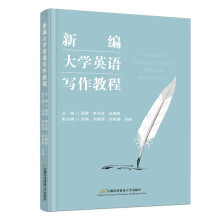
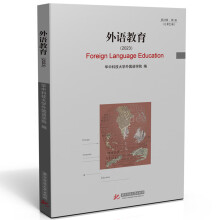

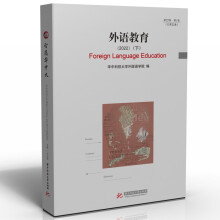

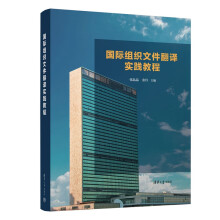
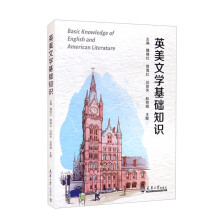
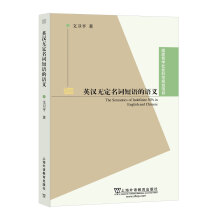
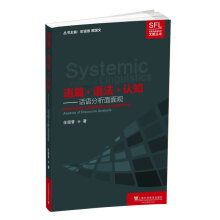

★纯正美语教学音频:全书采用纯正美语录制,听力+口语,方便跟读
★单词短语详尽解析:幽默风趣、生动易懂、清晰简明,语法剖析轻松易学,满满皆是干货
★实用地道对话练习:循序渐进、精选英语短文容易记,手把手带你从零基础“菜鸟”转变成英
语达人
★适合所有年龄段:考试、升职、留学、旅行,零基础或进阶学习者皆适用
很多人想学好英语,却总是事与愿违,其实不是我们学不好,而是英语基础不够扎实。
英语教学专家赖世雄老师发现这些问题之后,在喜马拉雅FM上为大家开设了一门课程——赖世雄零起
点英语(该课程收听量至今累计3000万次),用ZUII通俗易懂的语言,把抽象的语法理论转换成容易记
的公式化知识,从ZUII简单的打招呼开始,一点一滴地教给读者。如今,该系列课程已在大家的期待下
出版为纸质书教材,配合讲解音频,让赖老师做我们的贴身家教,不出国也能把英语学得棒棒的!
《赖世雄零起点英语》系列由赖世雄老师和吴纪维老师精心编写,常青藤英语团队细心编辑加工
,一共三册,以美语为主,共230课,依次分为入门篇、基础篇、进阶篇。零起点1是零散的基础语法
知识点的介绍,2和3慢慢介入课文的形式,通过文章语境的实例运用进一步巩固前附的语法知识。是
一套由浅入深、循序渐进、图文并茂、内容实用的英语教程,配合讲解音频,句句干货,让学习扎实
又有趣。
全套书的学习结构分为四步:对话或短文阅读、语法重点讲解、重要单词短语解析和习题自测。
短文话题的选取十分贴合生活,涵盖教育、艺术、科学、亲情友情、人物介绍以及社会话题等工作生
活常用素材,每篇文章还附有相关词汇,让读者在了解文章背景、学习语法知识的同时,也能扩大词
汇量,一举两得。
Lesson 170
Ecology 生态学
In the last 150 years or so, scientists have become interested in the way animals and plants live together. This interest has created a new branch of science called ecology.
Over millions of years, plants and animals have learned to change themselves so they can fit perfectly into their environment. For example, a saltwater fish lives best in the ocean and a mouse is healthiest in a field. Certain organisms may be found in a large area, but they do not live in all of it. They are usually only found in a small part of it. This is the place where it is easiest for them to live. Ecologists call this place their habitat. They study the way organisms survive in their natural habitat.
过去 150 年左右,科学家一直对动植物共存的方式颇感兴趣。这一兴趣创造了新的学科分支,这个分支被称为生态学。数百万年来,动植物已学会对自身做出改变,以便能完美地融入周遭环境中。举例来说,咸水鱼ZUII适合栖息在海洋中,老鼠在田野中生长得也ZUII健康。广大的区域会有可能发现某些物种,不过这些生物并非栖息在整块区域。通常只能在整块区域的一小块中发现这些生物。这一小块区域便是它们ZUII易生存的空间。生态学家把这块区域称为栖息地。他们研究生物在天然栖息地的生存方式。
语法重点
❶ 复习关系副词 where、when、why、how 的用法:
a. where 应置于表示“地方”的名词之后。
I live in Nanning, where I met my second girlfriend, who later became my wife.
地方
= I live in Nanning, in which I met my second girlfriend, who later became my wife.
我住在南宁,在那儿我遇到了我的第二位女友,后来她成了我的妻子。
I see the hilltop where there is a big mansion.
地方
= I see the hilltop on which there is a big mansion.
我见到了那座山顶,上面有一栋很大的庄园。
b. when 置于表示“时间”的名词之后。
The Second World War broke out in 1939, when my great grandfather was just an elementary schoolboy.
时间
= The Second World War broke out in 1939, in which my great grandfather was just an elementary schoolboy.
第二次世界大战于 1939 年爆发,当年我曾祖父还只是个小学生。
I still remember I left my hometown on a day when it was drizzling.
= I still remember I left my hometown on a day on which it was drizzling.
我仍记得我离开家乡的那一天正下着毛毛细雨。
c. why 应置于先行词 the reason(理由、原因)之后,the reason 或 why 亦均可省略,即
Tell me the reason why you want to resign.
= Tell me the reason for which you want to resign.
= Tell me the reason you want to resign.
= Tell me why you want to resign.
告诉我你要辞职的理由。
d. how 理应置于 the way(方法)之后,但 the way 与 how 不能并存,应删除其中之一,即
This is the way how I'll solve the problem. ( ╳ )
→ This is how I'll solve the problem. ( √ )
= This is the way I'll solve the problem. ( √ )
这是我将用来解决该问题的方法。
换言之,how 之前不得有先行词 the way。
❷ 本课倒数第三句即使用了关系副词 where:
This is the place where it is easiest for them to live.
= This is the place in which it is easiest for them to live.
这一小块区域便是它们ZUII易生存的空间。
重要单词短语解析
❶ 数字 + or so 若干……
= about / around + 数字
We need $4,000 or so to complete the project.
我们需要四千美元左右来完成这个项目。
❷ branch n.(学科的)分支;分公司;树枝
The company has branches all over the world.
该公司在世界各地都有分公司。
❸ ecology n. 生态学
❹ fit vi. 融入
fit into ... 融入……
fit in 融入;适应
Stubborn people find it hard to fit into society.
固执的人会发现融入社会是一件很难的事。
*stubborn adj. 固执的
It's a shame that my new boyfriend doesn't fit in with my friends.
很可惜我的新男友无法融入我的朋友圈。
❺ organism n. 有机物
❻ habitat n. 栖息地
inhabit vt. 栖息于;居住于
The island is inhabited by many different species.
许多不同物种栖息于该岛屿。
❼ survive vi. 生存 & vt. 活得比……久;幸免度过
The custom still survives in certain societies.
这种习俗仍留存在某些社会。
Mary survived her husband by 10 years.
玛丽比她丈夫多活 10 年。
The company managed to survive the recession.
该公司设法度过了经济萧条期。
*recession n. 不景气
温馨提示:请使用浙江工贸职业技术学院的读者帐号和密码进行登录